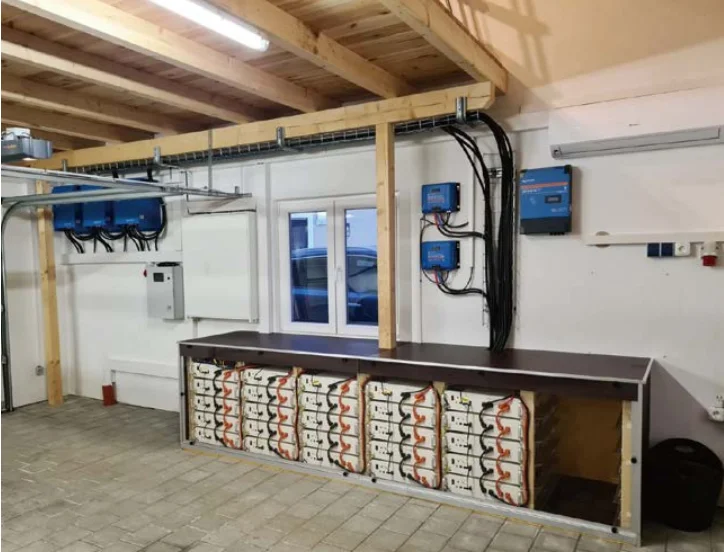
After a challenging but exciting DIY journey, two families located in Munich successfully installed Pytes’ home battery energy storage system, saving dozens of Euros on their electricity bills every day.
With household electricity prices soaring in 2022 and feed-in tariffs falling year by year, the economics of home energy storage in Germany appear more attractive than ever. For the two families located in Munich, the rising cost of electricity from electric vehicles was a key driver in installing energy storage for their existing solar systems. Storing excess solar power into LFP batteries, a safe and efficient deep-cycle battery, is the go-to solution to maximize the value and improve efficiency.

One of the energy storage systems is integrated from half a dozen of Victron Multiplus II inverters and 30 Pytes 48100R Lithium Iron Phosphate batteries. The 6 units of 5kW inverters are divided into 2 groups to form a three-phase system with a total of 30kW output capacity. 5 units of 48100R batteries are connected in parallel to form one stack, and 6 such stacks are connected in parallel again by a hub. So a battery bank consisting of 30 units totaling 153.6kWh was built in such a simple and elegant way.
Since more than eight batteries are all connected in parallel, a low-voltage hub from Pytes is utilized when building this system. The host battery of each battery stack is connected to the hub, and the hub is ultimately connected to Victron's Cerbo GX by using specific communication cables. During the 100% DIY assembly, the homeowner inevitably ran into some tricky issues some of which were even not covered in the user manual. Those challenges came for a reason. Victron inverters are well known for their modular design, which gives installers more flexible options, but at the same time definitely adds more challenges for DIYers. What’ more, in order to adapt to the inverter, the host of each battery stack needs to be coded with DIP-Switch, and the communication lines connecting the Hub to Cerbo GX also require some specific sequence. Fortunately, after getting online help from Pytes’ engineers, these problems were quickly identified and resolved.
For those who are not familiar with E-BOX 48100R batteries, these are some well built 5.12kWh server rack lithium iron phosphate batteries dedicated for residential ESS application. Packed with 2.56 kW continuous charge/discharge ability, it features a compact size, high performance and reliable quality. Its high current battery management system (BMS) comes with closed-loop communication and automatically manages batteries to achieve some really high performances.
It is worth a mention that thanks to the current incentives in Germany, the cost of getting these batteries installed is actually much lower than one might have expected. With more government encouragements on the way, retrofitting like this will only become more cost-effective and profitable.
Sitting quietly in the house of the German families, these Pytes + Victron systems are running smoothly. By leveraging excess photovoltaic power to charge the electric cars, those families are saving dozens of Euros on their electricity bill on a daily basis.